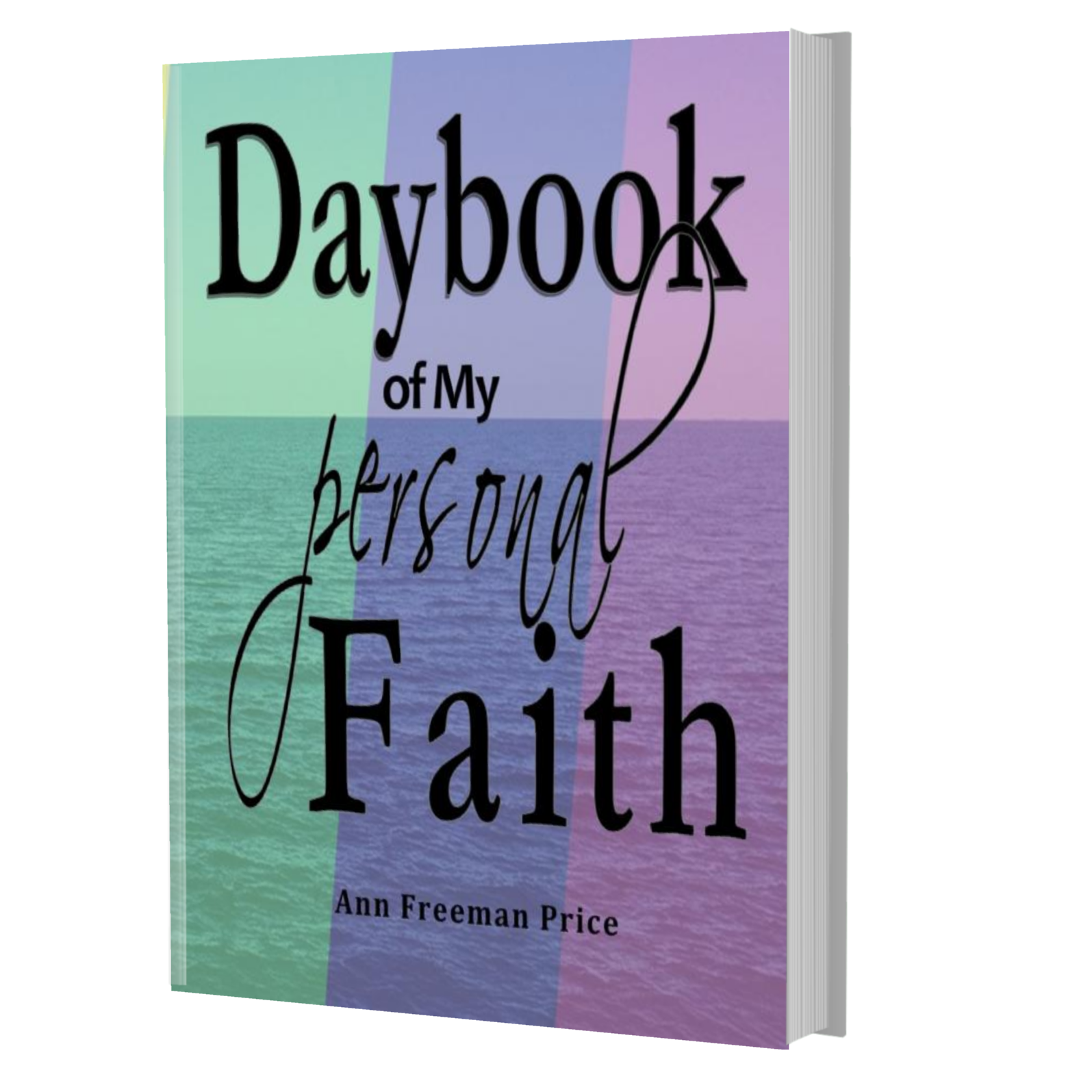Poet, Author, Composer....
Lostness
303. Lostness
I once read a little story about a man who was visiting a farmer. They were looking at some sheep and as the two people talked the farmer said, “You know, they don’t know where they’re going—the sheep. They just nibble themselves into lostness.”
When I get to the end of the day sometimes, I feel that way about the day. I feel like I nibbled a little here and a little there and I never got it together to know where I was going. And I was right smack in the middle of lostness by the end of the day.
Now I’m not really talking about those fun days where you just decide to ignore the list of things to do. Those aren’t lost days—they’re extravagant days and you’re doing just exactly where you planned.
For me, the feeling of lostness doesn’t usually last all that long, but it bothers me when I’m in the middle of it.
The Rooster Thing
302. The Rooster Thing
There are roosters sprinkled about my house. There’s one on my fireplace mantle, there’s a half-circle over my front door with a rooster on it. There are rooster plates, rooster mugs, a rooster teapot. I have a glass rooster from Corning Glass.
And on this day of April 16, they remind me of a six-month-old baby named Jackson. In 2001 I went with my daughter and son-in-law to Vietnam and they adopted Jackson. For eight days in Hanoi we played with him, I sang to him, we chattered to him. One of the things he would do with me was to “crow.” That’s what it sounded like to me, he just looked at me and made this loud noise. I would imitate it back to him and he would laugh as if he was so amazed that I could do it too. Our crowing reminded me of a rooster.
I’m glad to have the persistent reminder around the house because Jackson didn’t make it back here. He had a cold, something got worse, and on the plane from Hanoi to Ho Chi Minh City he stopped breathing. Then in the hospital of that city, he died—on April 16th.
Sometimes on this day I go to the cemetery nearby where he is buried and sing him “Baby Beluga.” It seems that the memories of those weeks in Vietnam have not dimmed very much, and the roosters remind me of how Jackson and I “crowed” together.
How Does It Affect the Children?
301. How Does It Affect the Children?
I read some time ago about a tradition in the Native American culture to make their plans based on how it would affect seven generations to come. The Hopi Nation also has a process called the Medicine Wheel where everyone sits in a circle and considers what it is that they want to do. The final, ultimate test comes before the grandmother and grandfather as they guard the children’s fire. These two have veto power. If what is being proposed can pass the test of the children’s fire—then it can be done. Will it be helpful or harmful? I worry that some of the things we are doing now are harmful and we need to veto them.
Robert Coles in his book The Moral Intelligence of Children, writes: “The child is a witness; the child is an ever-attentive witness of grown-up morality—or lack thereof.”
Perhaps we can recognize that the children are watching—even when we think they are not—they are watching; and we need to be planning not just for today but for days and years down the road—for the children.
The Edge-Sitters
300. The Edge-Sitters
I have a small collection of edge-sitters in my apartment. I have nine windows and five of the windows have an edge-sitter and one window has two edge-sitters who refuse to be separated. They are little people, although I also have one giraffe, who sit on the check-rail of the window. Now let’s talk about what a check-rail is since I just learned it myself. The bottom rail of the upper sash and the top rail of the bottom sash is called the check-rail and this is frequently where there is a lock—a lock on the check-rail. This is also where edge-sitters sit and when you look out the window, you see them. In the summer if you open the window, you have to move the edge-sitter first.
I’ve already mentioned that I have a wooden giraffe who was hand-carved in Kenya. a little girl holding a star, and a little girl with a peace sign. These last two are made out of dried orange peels. I also have a golden hair girl, and a witch, and Raggedy Ann and Raggedy Andy (they are the two who want to sit in the same window).
In 1995 I went to the Grand Canyon. I had seen a movie (can’t remember the name of it) about sitting on the edge of the canyon and I had planned to do it for years. Finally it happened and there I found myself being an edge-sitter. The Canyon was a sacred place and I still remember the awe of that sitting time.
I think you can sit on the edge in life too. Those are times where you’re not leaned back and comfortable and safe, but rather those are times when you’re perched right on the edge, alert, ready for opportunities, ready for those moments when you say “Count me in—let’s go,” and you go—off to another adventure.
It’s o.k. being an edge-sitter.
The Power of “As”
299. The Power of “As”
“As” is a little word—two letters—one syllable. But I’ve come to see that “as” can be quite powerful. Three examples in the Bible:
1) In Matthew it says “Just as you did it to one of the least of these…you did it to me.”
2) In Ephesians it is written, “Be kind to one another, tenderhearted, forgiving one another as God in Christ has forgiven you.”
3) In Luke: “You shall love the Lord your God with all your heart, and with all your soul, and with all your strength, and with all your mind, and your neighbor as yourself.”
4) In Mark: “Let the little children come to me; do not stop them; for it is to such as these that the Kingdom of God belongs…whoever does not receive the kingdom of God as a little child will never enter it.”
And as I read those examples (of which there are more), I can look back through my week and find the stumbling places. I can look at the week to come and hope that I can do better. And I can focus on right now on the ways “as” impacts my living.
Plant the Peace
298. Plant the Peace
—
plant the peace
use non-violent
love because
it will work
and as with Gandhi soul-force
resolve the conflict
—
© Copyright 2011 by Ann Freeman Price
Spread the Love
297. Spread the Love
—
spread the love
with friends, family,
enemies,
stranger too
include them all – love each one
no exceptions – none
—
© Copyright 2011 by Ann Freeman Price
Sow the Joy
296. Sow the Joy
—
sow the joy
scatter it through your
piece of earth
work it deep
so it can hold the essence
of your life’s journey
—
© Copyright 2011 by Ann Freeman Price
The Wire Basket
295. The Wire Basket
Always looking for better ways to stay organized, I went out to storage to get the wire basket. I had put it out there because it didn’t work the first time. Now I was sure it would. It could hold items that needed to be done, and I could keep it from overflowing.
It started out fine and held proudly a few things that needed doing. A busy week came along and the few things seemed to give birth to triplets in the basket so that now it was almost full.
I went through it. Some things were now too late to do and were put in recycling. I attached sticky notes to the rest of the things so it was easy to identify exactly what needed to be done. It was still almost full. When there was a heavy mail day, a few things got added to the basket. When there was a meeting, a few more things got added.
And suddenly a light bulb went off in my head. I realized the magical process that I had put in place. I was beginning to believe that if I put a sticky note on something explaining what needed to be done; and if I added those papers to the wire basket; then—I could go on with my life because it actually was as good as done.
All I needed to do was go through it occasionally when it began to get too full and put the things, complete with sticky notes, that were now too late to do, into the recycling bin. With this system, you never have to do the things that need doing. Hooray—the wire basket works!
Ego Strength
294. Ego Strength
When I was in the Masters program at New York University in music therapy, each semester I was required to be a part of a music therapy group. Peter Jampel was the music therapist for my group. The only homework was to keep a log and turn it in each week, and receive back the log you had turned in the week before with Peter’s comments.
One week in connection with something that had happened in group, I wrote out in my log the story of being taken to the Indianapolis Symphony when I was ten or eleven by my mother. Fabian Sevitsky was the conductor. I loved the concert and was enjoying the last piece, when a woman got up and started to quietly leave. Sevitsky rapped with his baton on his music stand and the orchestra stopped. So did the woman. Sevitsky turned to face her and said with his heavy accent, “You do not leave when Sevitsky is conducting.” She slid into a seat and sat down. He turned to face the orchestra again, and they resumed playing to the end of the piece.
I turned my log in with that story. The next week as I turned in another log, I received the one back with the Sevitsky story. I was always eager to read Peter’s written comments. I was walking along the street reading, and beside that story he had written, “If she had had more ego strength she would have just kept walking.” I almost shouted out loud. I did raise my fist and said “YES!”
It had never, ever occurred to me that she could have done that. Whether it’s polite to leave a concert early was not the point on that evening near the University. It just was somehow exciting to me that she could have kept walking!


